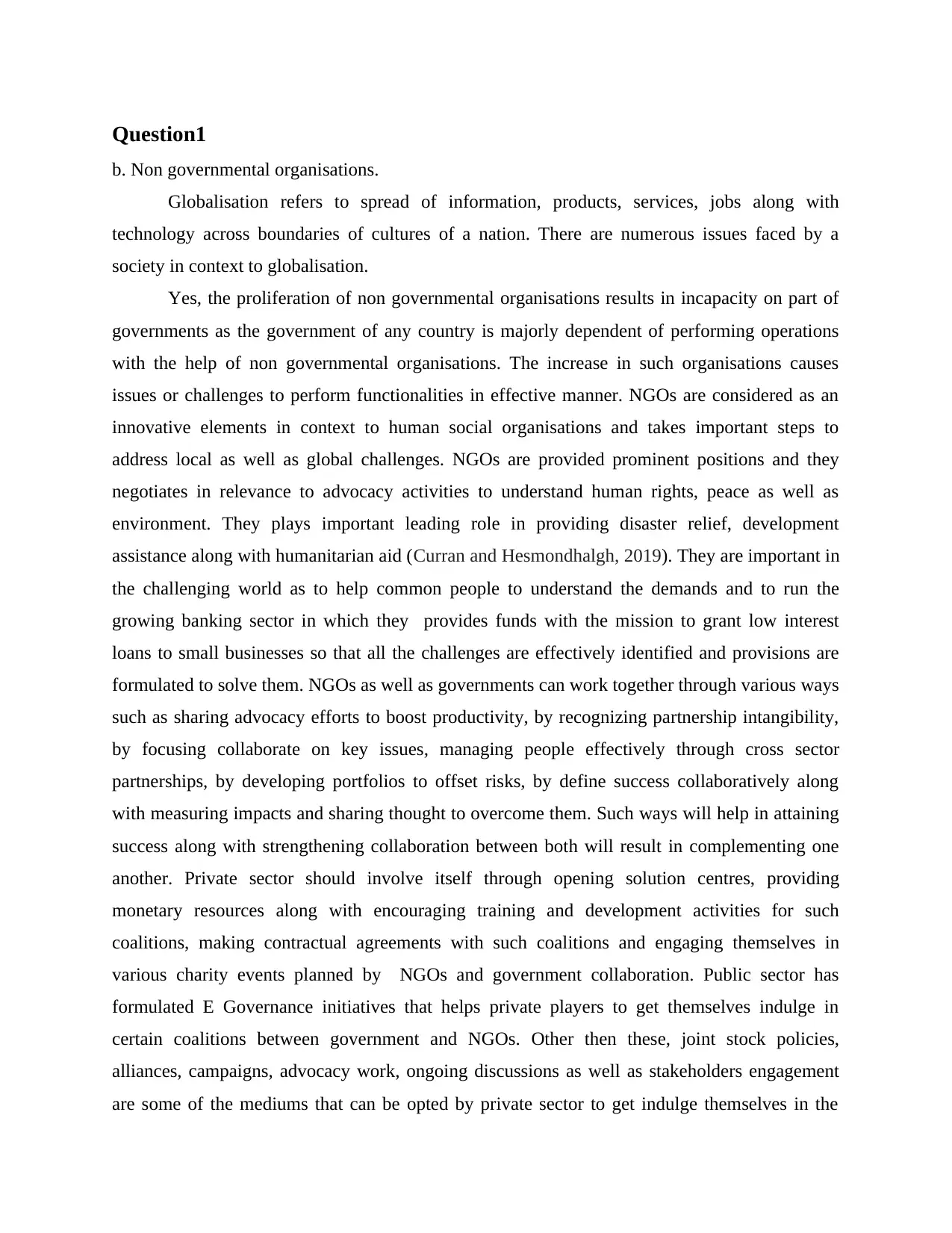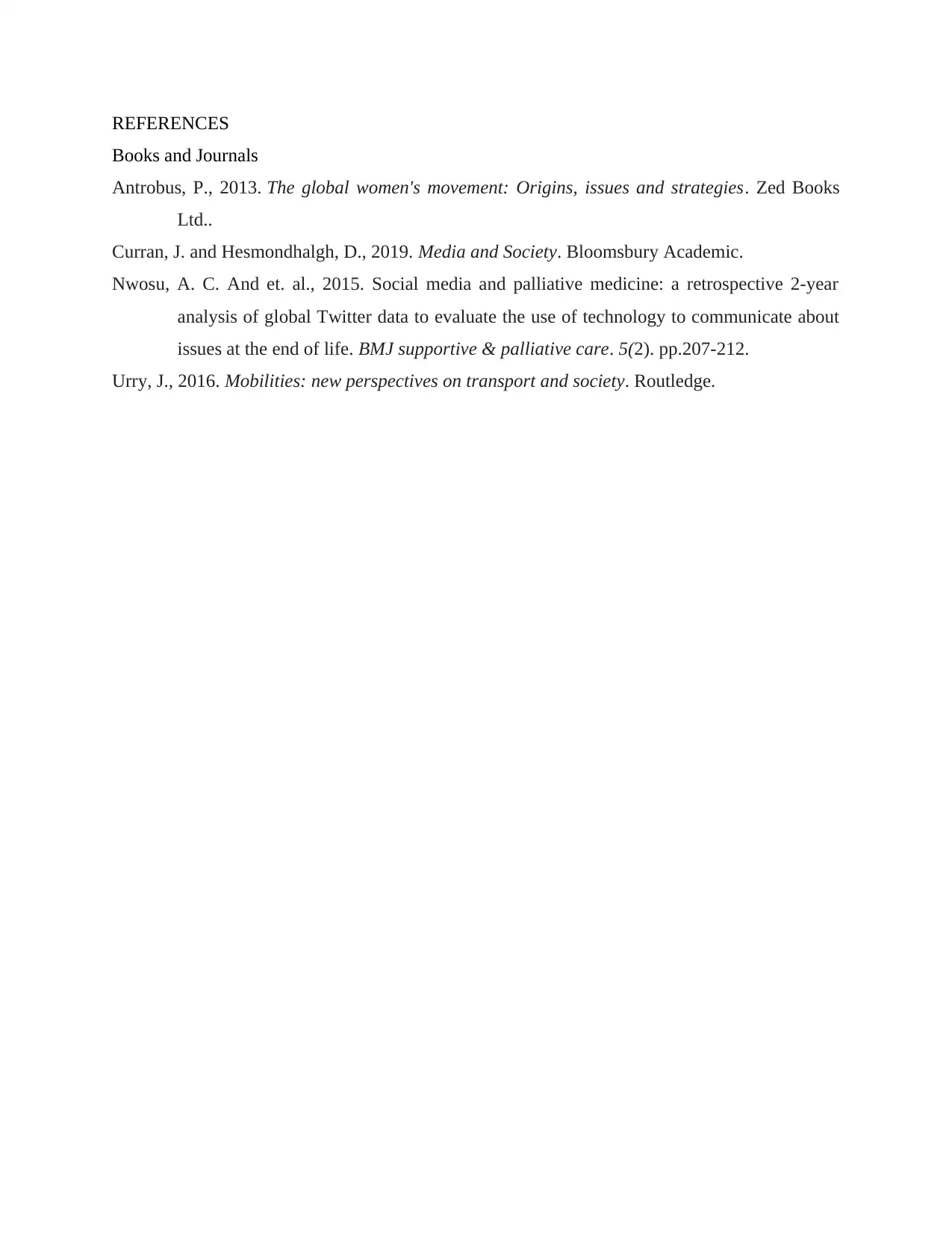Global Issues & Society 1: NGOs and Nation-State Evolution Review
VerifiedAdded on 2021/02/19
|5
|917
|22
Homework Assignment
AI Summary
This assignment explores the complex relationship between Non-Governmental Organizations (NGOs) and nation-states within the context of globalization. It begins by examining the increasing influence of NGOs and their impact on government operations, highlighting the challenges and opportunities that arise from this dynamic. The assignment then delves into the evolution of the nation-state model, discussing the establishment of national identities and the shift beyond the Westphalian model, driven by factors like international integration and socio-cultural development. The response analyzes the government's role in adapting to this evolving environment, including the formulation of relevant policies and the importance of leadership in achieving both national and international goals. The work also emphasizes the necessity of collaboration between the private and public sectors to effectively address global issues. The assignment concludes with a discussion of how governments can embrace these new opportunities. The assignment includes relevant references to support the arguments presented.
1 out of 5












![[object Object]](/_next/static/media/star-bottom.7253800d.svg)